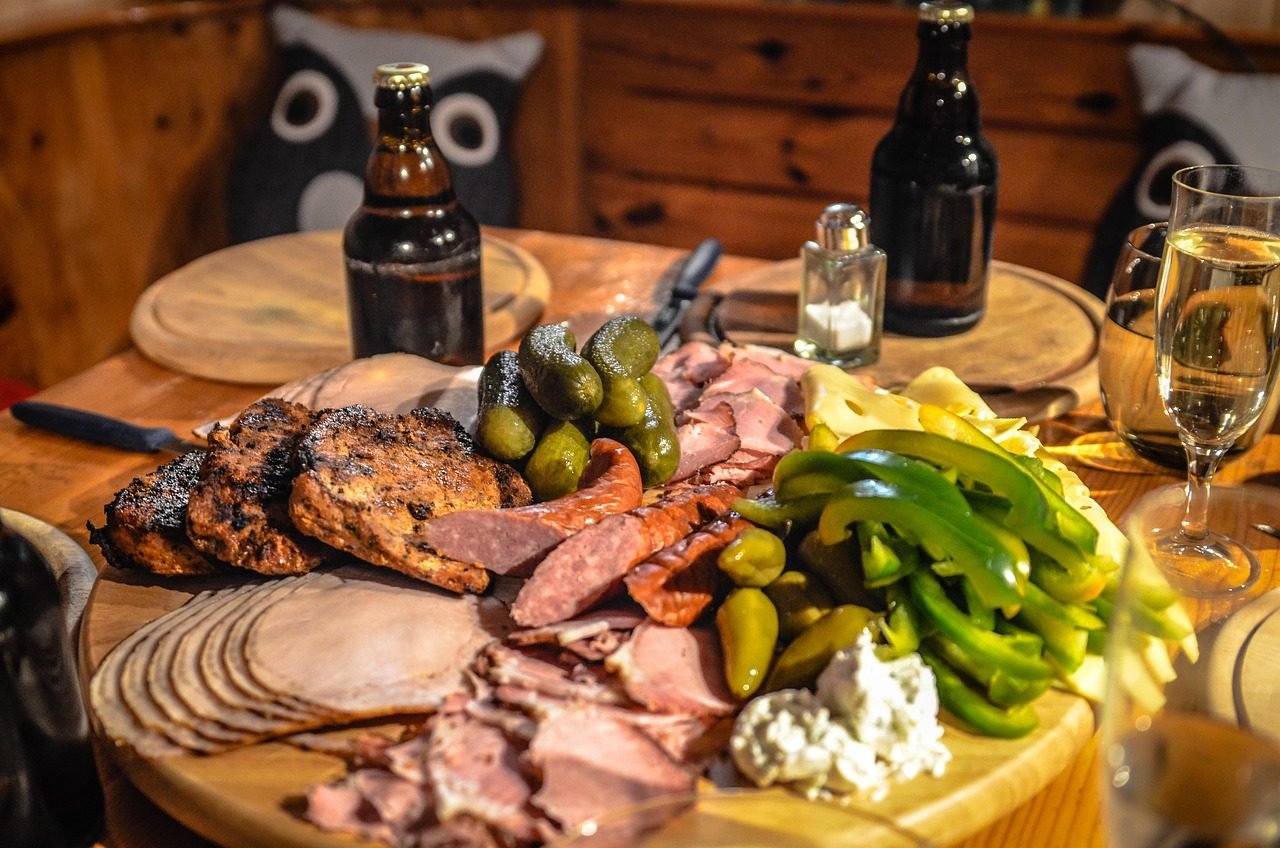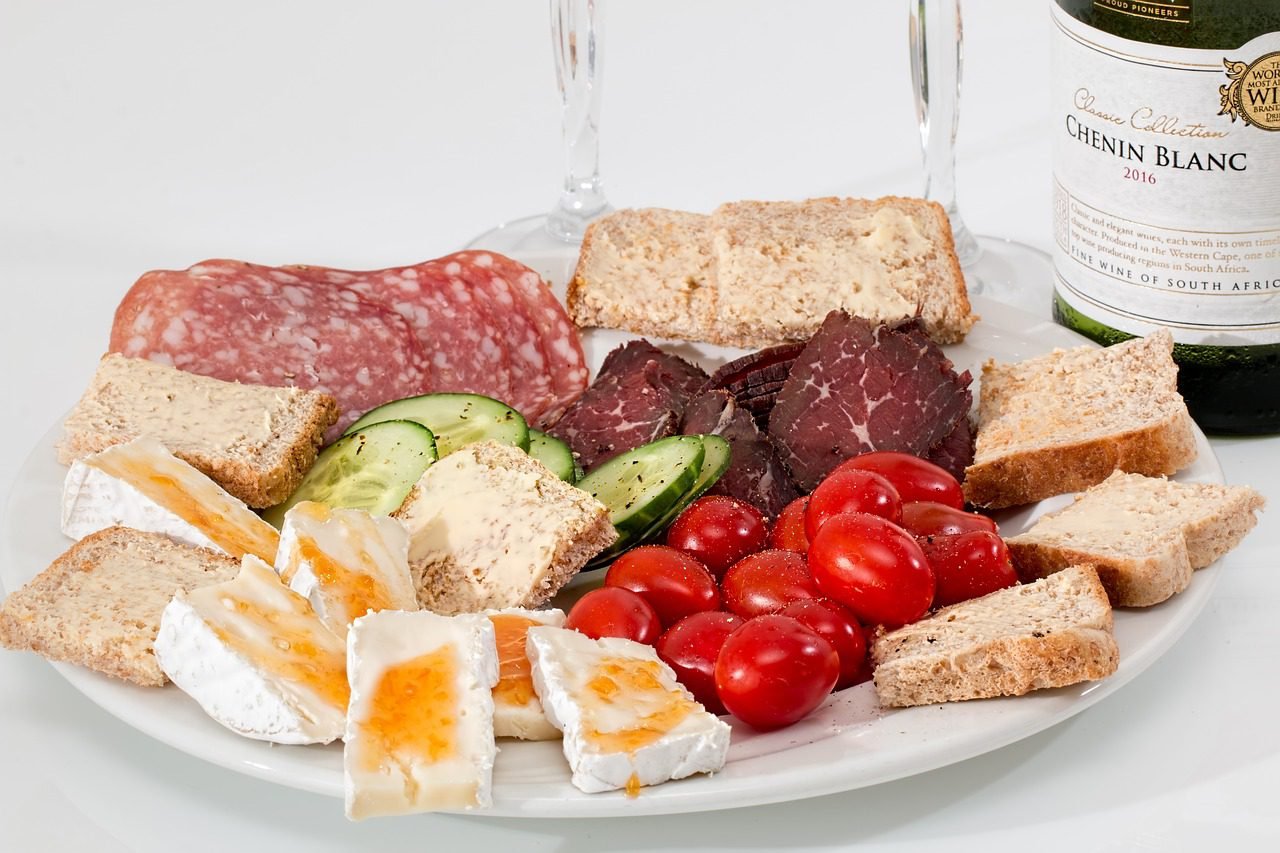Have you ever wondered if it’s possible to enhance the flavor of your meat dishes by incorporating tea leaves? Well, the answer might surprise you – yes, you can indeed smoke meat using tea leaves! This unconventional method not only adds a unique twist to your culinary creations but also infuses a subtle, yet tantalizing aroma that elevates the overall taste experience. Whether you’re a tea enthusiast or simply looking to experiment with new flavors, smoking meat with tea leaves might just be the game-changer you’ve been seeking for your next barbecue gathering. Let’s explore how this unconventional pairing can take your grilling adventures to new heights!
Introduction
If you’re a fan of smoked meat, you may have wondered about unique and unconventional smoking agents. One such agent that has gained popularity in recent years is tea leaves. Yes, you read that right – tea leaves. In this article, we will explore the possibility of smoking meat using tea leaves, as well as delve into the benefits, techniques, and recipes associated with tea smoking. So, can you smoke meat using tea leaves? Let’s find out!
1. Understanding Smoking Meat
1.1 Definition of Smoking Meat
Before we delve into the world of tea smoking, it’s important to understand the concept of smoking meat itself. Smoking refers to the process of flavoring, cooking, and preserving meat by exposing it to smoke from burning or smoldering materials. This is typically done in a controlled environment, such as a smoker or grill, where the smoke surrounds the meat, imparting a distinct flavor and aroma.
1.2 History of Smoking Meat
Smoking meat has been a practice for centuries, with its origins rooted in the need for preservation. In ancient times, smoking was used to extend the shelf life of meat and prevent spoilage. Over time, smoking evolved from a purely practical preservation method to a culinary technique that adds a unique taste to various meats.
1.3 Different Smoking Methods
There are various smoking methods employed by barbecue enthusiasts and chefs alike. The two primary methods are cold smoking and hot smoking. Cold smoking involves exposing meat to smoke without heat, while hot smoking combines smoking with cooking at higher temperatures. Both methods have their merits and are used to achieve different flavor profiles and textures.

2. Tea Leaves as a Smoking Agent
2.1 What Are Tea Leaves?
Tea leaves are the dried leaves of the Camellia sinensis plant, which is native to East Asia. There are several types of tea leaves, including black, green, oolong, and white tea. These leaves are harvested, processed, and transformed into the various tea products that we consume on a daily basis.
2.2 Traditional Uses of Tea Leaves
Traditionally, tea leaves are steeped in hot water to make a refreshing beverage. However, tea leaves have also been used for their medicinal properties, as ingredients in cooking, and even for beauty treatments. The versatility of tea leaves extends beyond the teacup, making them an intriguing option for culinary experimentation.
2.3 Smoking Meat with Tea Leaves – Is it Possible?
Now, let’s address the burning question – can you smoke meat using tea leaves? The answer is a resounding yes! Tea leaves can be used as a smoking agent to infuse meat with a delicate yet distinctive flavor and aroma. Tea smoking adds a unique twist to traditional smoking methods and opens up a world of possibilities for culinary exploration.
3. Benefits of Smoking with Tea Leaves
3.1 Flavor Enhancement
One of the primary benefits of smoking meat with tea leaves is the flavor enhancement it provides. Each type of tea leaves imparts its own unique taste, ranging from bold and smoky to light and floral. This adds depth and complexity to the flavor profile of the meat, elevating it to new heights of culinary delight. Whether you prefer a rich black tea or a fragrant herbal blend, tea smoking offers a wide range of flavors to suit every palate.
3.2 Health Benefits
Beyond the flavor factor, smoking meat with tea leaves can also offer potential health benefits. Tea leaves, especially green tea leaves, are known for their antioxidant properties. These antioxidants can help counteract the harmful effects of free radicals in the body and contribute to overall well-being. While the exact extent of the health benefits derived from tea smoking is still being researched, it’s an enticing aspect to consider.
3.3 Versatility and Experimentation
Tea smoking opens up a world of versatility and experimentation in the realm of smoked meats. With a wide array of tea leaves to choose from, you can tailor the flavor of your smoked meat to suit your preferences. From robust black tea for hearty meats to delicate floral blends for seafood, the options are endless. Tea smoking allows you to unleash your creativity and explore unconventional flavor combinations, making it an exciting culinary adventure.

4. Types of Tea Leaves for Smoking
4.1 Black Tea Leaves
Black tea leaves are fully oxidized and undergo a rigorous process of withering, rolling, oxidation, and drying. The resulting leaves offer a robust and smoky flavor profile that pairs exceptionally well with red meats. When used as a smoking agent, black tea leaves infuse the meat with a deep and distinct taste, creating a harmonious combination of flavors.
4.2 Green Tea Leaves
Green tea leaves, on the other hand, are minimally processed and undergo minimal oxidation. This gentle processing method preserves the natural freshness and delicate flavors of the leaves. When used for smoking, green tea leaves can add a subtle and refreshing twist to meats, enhancing their natural flavors without overpowering them. Green tea smoking is particularly well-suited for poultry and seafood dishes.
4.3 Herbal Tea Leaves
Herbal tea leaves encompass a wide range of plants and herbs, each offering unique flavors and aromas. Herbal teas are typically caffeine-free and can be made from plants such as chamomile, mint, lemongrass, and lavender, among others. When used for smoking, herbal tea leaves impart a fragrant and aromatic essence to the meat, creating a sensory experience that tantalizes the taste buds.
5. Tea Smoking Techniques for Meat
5.1 Cold Smoking with Tea Leaves
Cold smoking with tea leaves involves exposing the meat to smoke without applying heat. This method is typically used for meats that are already cooked or cured, as it doesn’t raise the temperature enough to cook raw meat. The meat is placed in a closed chamber or container with smoldering tea leaves, allowing the smoke to penetrate and flavor the meat slowly over an extended period. Cold smoking creates a milder and subtler infusion of tea flavors, making it ideal for delicately flavored meats and fish.
5.2 Hot Smoking with Tea Leaves
Hot smoking with tea leaves combines smoking and cooking, as the meat is exposed to both smoke and heat simultaneously. This method is suitable for raw meats, as the heat ensures that the meat reaches a safe internal temperature while smoking. The meat is placed on a grill or in a smoker, with the smoldering tea leaves generating smoke to envelop the meat. Hot smoking results in a more robust infusion of tea flavors, perfect for heartier meats that can withstand bolder tastes.
5.3 Tea Smoking Tips and Tricks
When venturing into the realm of tea smoking, it’s essential to keep a few tips and tricks in mind to ensure the best results. Firstly, choose tea leaves that complement the flavor of the meat you’re smoking. Be adventurous and try different tea combinations to find your preferred taste profile. It’s also important to ensure that the tea leaves are well-dried before using them for smoking, as damp leaves can create overly acrid smoke. Lastly, pay attention to the smoking time and temperature to achieve the desired flavor and doneness of your meat.

6. Choosing the Right Meat for Tea Smoking
6.1 Meats That Pair Well with Tea Smokiness
While tea smoking offers a world of experimentation, certain meats tend to pair particularly well with the smoky essence of tea. Red meats such as beef, lamb, and venison are robust enough to complement the bold flavors of black tea smoking. Poultry, including chicken and duck, can benefit from the delicate touch of green tea smoking. Seafood, especially salmon and trout, harmonizes beautifully with the subtle nuances of herbal tea smoking.
6.2 Recommended Cuts of Meat for Tea Smoking
When it comes to specific cuts, certain ones are better suited for tea smoking to achieve optimal flavor and tenderness. For black tea smoking, cuts like brisket, ribs, and steaks are ideal choices. They can withstand the longer smoking times required to fully infuse the smoky flavors. For green tea smoking, lean cuts of chicken breast, turkey, or fish fillets work well. The delicate flavors of green tea can complement these lean meats without overpowering them. Herbal tea smoking is best suited for more delicate cuts of meats or seafood, such as tenderloins, shrimp, or scallops.
7. Tea Smoking Recipes for Different Meats
7.1 Tea-Smoked Chicken Breast
For a light and flavorful tea-smoked chicken breast, start by marinating the chicken in a mixture of soy sauce, honey, ginger, and garlic. After marinating, hot smoke the chicken breast with green tea leaves for approximately 1 hour, until the internal temperature reaches 165°F (74°C). Serve alongside a crisp salad or steamed vegetables for a healthy and aromatic meal.
7.2 Tea-Smoked Salmon
To create a delectable tea-smoked salmon, prepare a dry rub with black tea leaves, brown sugar, and a touch of salt. Coat the salmon fillets with the rub and let them sit for 30 minutes to develop the flavors. Cold smoke the salmon with the black tea mixture for about 2 hours, until the fish is fully infused with smoky tea goodness. Serve the tea-smoked salmon with a side of lemon-dill sauce and roasted asparagus for a delightful culinary experience.
7.3 Tea-Smoked Pork Ribs
For tea-smoked pork ribs bursting with flavor, prepare a spice rub using black tea leaves, paprika, brown sugar, garlic powder, and onion powder. Rub the mixture generously onto the ribs and let them rest for an hour to absorb the flavors. Hot smoke the ribs with black tea leaves for approximately 4-6 hours, until they are tender and succulent. Brush the tea-smoked ribs with a tangy barbecue sauce and serve them alongside coleslaw and cornbread for a finger-licking good barbecue feast.
9. Alternative Smoking Agents
9.1 Wood Chips and Pellets
While tea leaves offer a unique and intriguing alternative for smoking, traditional smoking agents such as wood chips and pellets still hold their place in the realm of smoked meats. Each type of wood, whether hickory, applewood, or mesquite, imparts its own distinct flavor, allowing you to tailor your smoked meats to your liking. Wood chips and pellets can be used in combination with tea leaves to create exciting flavor profiles and enhance the overall smokiness.
9.2 Spices and Herbs
Spices and herbs can also be utilized as smoking agents, injecting an added layer of complexity to your smoked meats. Popular choices include dried rosemary, thyme, cinnamon, and cloves. These aromatic additions can be combined with tea leaves or used on their own to create a tantalizing symphony of flavors.
9.3 Other Non-Conventional Smoking Agents
In addition to tea leaves, wood chips, and spices, other non-conventional smoking agents can be explored for those seeking to push the boundaries of smoky experimentation. Some examples include dried fruit peels, coffee grounds, and even dried corn husks. These unconventional smoking agents can add unique twists and unexpected flavors to your smoked meats, allowing you to truly unleash your culinary creativity.
In conclusion, smoking meat using tea leaves is not only possible but also offers a multitude of benefits, ranging from enhanced flavors to potential health advantages. The world of tea smoking opens up a realm of culinary exploration and experimentation, with a wide range of flavors and techniques to be discovered. So go ahead, grab your favorite tea leaves, fire up the smoker, and embark on a journey of smoky meat perfection. Happy tea smoking!
